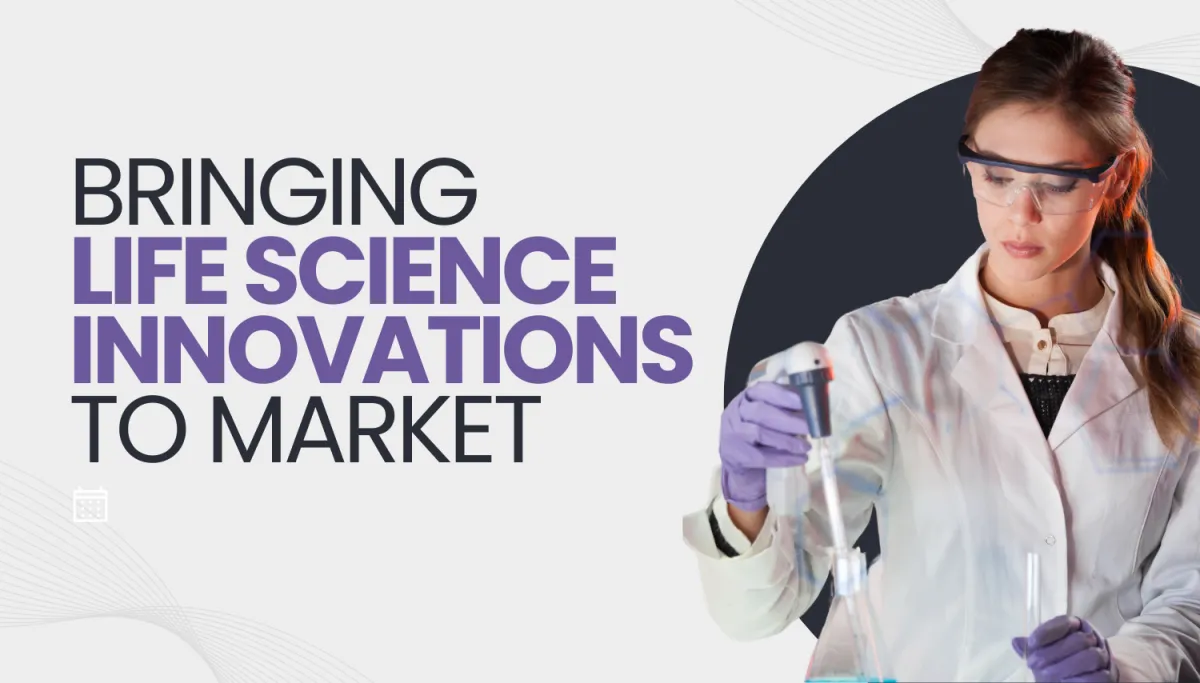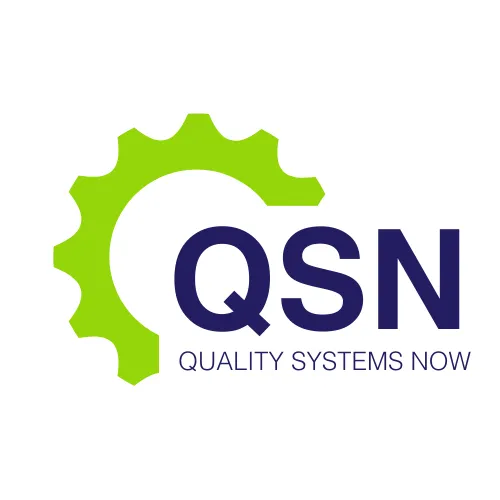Latest News

Bringing Life Science Innovations to Market
The path from innovation to commercialization in the life sciences industry is often fraught with complexity. Ensuring that novel ideas, products, or solutions transition successfully from concept to market-ready offerings requires a structured and strategic approach. Navigating the Commercialization Journey, the newly launched eBook from Quality Systems Now (QSN), offers a comprehensive roadmap for life science professionals seeking to optimize their commercialization strategies while addressing regulatory compliance and quality systems.
Understanding the Commercialization Process in Life Sciences
Commercialization is the process of transforming scientific innovations into marketable products or services that deliver value to end users. In the life sciences sector, this includes pharmaceuticals, medical devices, biotechnology, and advanced therapeutic products. The journey encompasses research and development (R&D), clinical validation, regulatory approval, manufacturing scale-up, and market launch.
The commercialization pathway is unique for life sciences due to stringent regulatory oversight and the critical importance of ensuring patient safety and product efficacy. For organizations attempting to bring innovative solutions to market, navigating this intricate process requires specialized knowledge, robust quality systems, and strategic decision-making. QSN’s Navigating the Commercialization Journey provides the actionable guidance needed to address these complexities and achieve successful outcomes.
Key Themes Explored in Navigating the Commercialization Journey
The eBook is divided into key focus areas designed to simplify and streamline the commercialization process for organizations in the life sciences. Some of the essential topics include:
1. Strategic Development and Planning
The initial stages of commercialization require clear strategic planning. This includes defining product-market fit, identifying target customers, and conducting thorough feasibility studies. Strategic development sets the foundation for subsequent steps by aligning product goals with regulatory expectations and market demand. The eBook outlines tools and frameworks for planning success, including:
Market and technology assessments
Product differentiation and value propositions
Risk-based approaches for innovation development
2. Navigating Regulatory Pathways
Regulatory approval is one of the most significant challenges in life science commercialization. Products must comply with stringent global standards, such as FDA (United States), EMA (Europe), or TGA (Australia), depending on the intended market. Achieving compliance requires extensive documentation, rigorous testing, and adherence to Good Manufacturing Practices (GMP).
The eBook offers in-depth insights into:
Global regulatory frameworks and their implications
Developing a regulatory submission strategy
Addressing common challenges in clinical trials and product registration
3. Implementing Quality Systems
Quality management is integral to life science commercialization. Regulatory authorities mandate the establishment of robust quality systems to ensure consistent product safety, efficacy, and reliability. The eBook emphasizes the importance of implementing Quality Management Systems (QMS) in alignment with international standards such as ISO 13485, ICH Q10, and PIC/S guidelines.
Topics include:
Developing compliant QMS frameworks
Ensuring data integrity, risk management, and process validation
Supporting audits and inspections through documentation excellence
4. Scaling Up Manufacturing
Transitioning from lab-scale production to commercial-scale manufacturing requires careful planning and validation. Issues such as process optimization, equipment qualification, and supply chain management can impact production efficiency and regulatory compliance. The eBook outlines practical steps to:
Validate manufacturing processes (e.g., process performance qualification)
Ensure robust technology transfers
Manage supply chain risks and third-party partnerships
5. Market Access and Post-Market Surveillance
Even after achieving regulatory approval and market launch, life science organizations must continue to monitor product performance. Post-market surveillance ensures that products meet safety and efficacy expectations under real-world conditions. Additionally, market access strategies must consider pricing, reimbursement, and competitive positioning to drive adoption and profitability.
The eBook highlights:
Strategies for market entry and commercialization planning
Methods for conducting post-market safety studies and real-world evidence collection
The importance of lifecycle management and product iteration
Why Navigating the Commercialization Journey Matters for Life Science Professionals
The eBook addresses a critical knowledge gap in the life sciences sector. While many organizations excel in innovation, few possess the expertise needed to navigate the complexities of commercialization effectively. Failure to address challenges such as regulatory compliance, quality management, or manufacturing scale-up can delay market entry, jeopardize product approval, or result in financial losses.
By offering actionable insights and real-world examples, Navigating the Commercialization Journey empowers life science professionals to:
Streamline processes: Enhance operational efficiency by leveraging proven frameworks and best practices.
Ensure compliance: Achieve regulatory approval without costly delays or deviations.
Improve decision-making: Implement data-driven strategies to reduce risks and optimize resource allocation.
Maximize impact: Accelerate time-to-market while delivering safe, high-quality products to patients and consumers.
The QSN Expertise: A Trusted Resource for Life Sciences
As a trusted leader in regulatory compliance and quality systems, Quality Systems Now (QSN) brings unparalleled expertise to the life sciences community. Their team of industry specialists has a proven track record of helping organizations navigate regulatory pathways, implement compliant quality systems, and achieve successful commercialization outcomes.
QSN’s Navigating the Commercialization Journey reflects this commitment to excellence. It is designed to serve as both a strategic guide and practical toolkit, ensuring that organizations can overcome commercialization barriers and achieve sustainable growth.
Who Should Read Navigating the Commercialization Journey?
This eBook is tailored to professionals across the life sciences industry, including:
Pharmaceutical and biotech organizations
Medical device manufacturers
Research and development teams
Regulatory affairs and quality assurance professionals
Commercial leaders seeking to bring innovative solutions to market
By bridging the gap between science, regulation, and commercialization, the eBook provides the clarity and confidence needed to navigate this complex journey.
Conclusion: A Roadmap for Success in Life Science Commercialization
Innovation alone is not enough to ensure success in the life sciences. Bringing products to market requires a rigorous, structured approach that balances creativity with compliance, quality, and strategic execution. QSN’s Navigating the Commercialization Journey is an essential resource for organizations striving to achieve these objectives.
From strategic planning and regulatory approval to manufacturing scale-up and post-market surveillance, this comprehensive guide equips life science professionals with the knowledge and tools to navigate the commercialization process successfully. With QSN’s expertise as a foundation, organizations can accelerate innovation, mitigate risks, and deliver transformative solutions to patients and end users worldwide.
For more information and to access Navigating the Commercialization Journey, visit Quality Systems Now.
